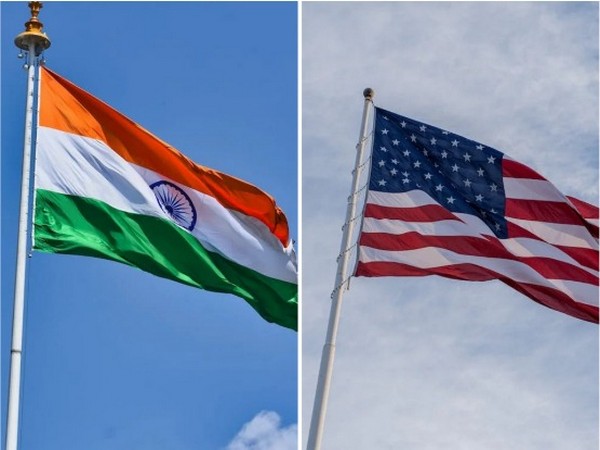Marking a significant milestone in the India-US space partnership and space exploration, the two countries concluded the Strategic Framework for Human Spaceflight Cooperation to deepen interoperability in space and are working toward commencing advanced training for ISRO astronauts at the NASA Johnson Space Center, the first-ever joint effort between NASA and ISRO astronauts at the International Space Station.
A fact sheet issued by the US and India on Monday after the iCET Dialogue between US National Security Adviser (NSA) Jake Sullivan and Indian National Security Advisor Ajit Doval read, “Celebrating the conclusion of a Strategic Framework for Human Spaceflight Cooperation to deepen interoperability in space and work toward commencing advanced training for ISRO astronauts at the NASA Johnson Space Center.”
NASA will have a hand in training two Indian astronauts, one of whom will fly to the International Space Station (ISS) late this year. ISRO chairman S Somanath had earlier said that ISRO will likely select four astronauts for training.
Notably, India’s planned space station is called the Bharatiya Antariksha Station. It will be built by India and operated by the Indian Space Research Organisation (ISRO). The station is expected to be completed by 2035. NASA plans to decommission the ISS by 2031.
The Indian space station will be smaller than the International Space Station (ISS). It will have a mass of 20 tonnes (ISS – 450 tonnes and Chinese Tiangong Space Station – 100 tonnes) and will be used for microgravity experiments. It will orbit Earth at an altitude of around 400km.
Meanwhile, the fact sheet issued by the US and India after the iCET Dialogue said that the two sides are also exploring opportunities to participate in the Lunar Gateway Programme.
“Exploring opportunities for India’s participation in the Lunar Gateway Program, as well as joint avenues for collaboration in other space technologies,” read the fact sheet.
The Lunar Gateway represents a significant leap in human space exploration, offering a versatile platform for lunar surface missions, scientific research, and preparation for future deep-space endeavours spearheaded by US.
Artemis intends to establish a long-term base on the Moon (Artemis base), and the Lunar Gateway will serve as a multi-purpose outpost that orbits the Moon. The Gateway is a multinational project involving four of the International Space Station partner agencies: NASA, the European Space Agency (ESA), Japan’s Aerospace Exploration Agency (JAXA), and the Canadian Space Agency (CSA).
The Gateway Station is similar to the International Space Station currently in low Earth orbit, but the Gateway will orbit the Moon. Incidentally, the Gateway will be the first space station ever to exist outside of low Earth orbit or LEO.
The fact sheet also noted that the space agencies of the two countries are preparing for the launch of the NASA-ISRO Synthetic Aperture Radar, a jointly developed satellite that will map the entirety of the Earth’s surface twice every 12 days as part of efforts to combat climate change and other global challenges together.
NISAR will be the first radar imaging satellite to use dual frequencies. The mission will survey all of Earth’s land and ice-covered surfaces every 12 days. It has a three-year duration. The main aim of the NISAR satellite is to observe the most complex natural processes of the planet, including ecosystem disturbances, ice-sheet collapse, as well as earthquakes, volcanoes and landslides.
The iCET talks also saw the launch of a new partnership between the US Space Force and the Indian startups — 114ai and 3rdiTech — including on advancing space situational awareness, data fusion technologies, and infra-red sensor semiconductor manufacturing.
“Launching a new partnership between the US Space Force and the Indian startups, 114ai and 3rdiTech, including on advancing space situational awareness, data fusion technologies, and infra-red sensor semiconductor manufacturing,” read the fact sheet.
The two sides welcomed India’s observation of the US Space Command’s Global Sentinel Exercise at Vandenburg Space Force Base in February and its return as a participant in the exercise in 2025. “Welcoming India’s observation of the U.S. Space Command’s Global Sentinel Exercise at Vandenburg Space Force Base in February and its return as a participant in the exercise in 2025.”
The key points that were highlighted in the fact sheet were Significant Funding Commitments, NASA-ISRO Collaboration, Defence Space Technology, Telecommunications Advances, Semiconductor Partnership, and Quantum and AI Cooperation amongst many.
“Strengthening defence space cooperation through the second Advanced Domains Defense Dialogue held at the Pentagon in May 2024, which featured an India-US space table-top exercise and included bilateral expert exchanges on emerging domains including artificial intelligence,” the fact sheet added. (ANI)





















